How We Do What We Do: Anne Looby with Marika Aubrey
My second job ever on TV was the obligatory guestie on All Saints. Naturally I was excited – it was a kooky role on my Mum’s fave show! But actually one of the greatest thrills of the experience was getting the call-sheet for the table read and seeing ‘Anne Looby’ on the same page as ‘Marika Aubrey’. I died.
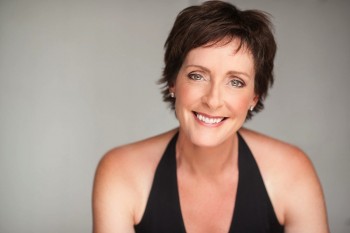
You see, I had adored Anne’s work from a young girl obsessed with A Country Practice and I had always had her on the private list in my brain entitled ‘Actor’s I Admire Who Have Had A Career I Quite Fancy For Myself’ (along with Michelle Doake, Noni Hazlehurst and Essie Davis… but I digress…).
So it is a great thrill for me to sit down this week over an excellent homemade coffee (thanks Anne!) and talk honestly and busily with Anne about her lengthy career across TV, film and theatre, as well as creating theatre as a vehicle for change (Breast Wishes), throwing herself in the deep end with her return to musical theatre (as Joanne in Company) and how her roles are evolving as her (*cough) birthdays pass each year.
Anne needs little introduction. A main stage player with many national theatre companies, a regular sight on our tellies (most recently in Power Games – The Packer Murdoch Story), an AFI Award winner (for her performance in Simone De Beauvoir’s Babies), a Sydney Theatre Critics Award for Best Actress in Arcadia for the STC, a Sydney Theatre Award nomination (Company) and a Helpmann nomination (The Peach Season).
I join Anne in the sunshine on her verandah at home, with our mugs in hand to explore how we do what we do…
Turning Pro
Marika: Why did you want to be an actor?
Anne: Well, I used to do amateur theatre when I was 16 until about 19…
Marika: In the Northern Beaches, Sydney?
Anne: The Northern Beaches. I was mad about musical theatre. Like when everyone else was listening to pop music, I was listening to Liza Minnelli.
Marika: Yeah, I was the same kid.
[pull_left]Everyone talks about ‘being in the zone’ and I think ‘in the zone’ is an inner stillness[/pull_left]
Anne: It was fabulous, those years going to the theatre, just so much fun. I still have friendships from those days. When I was there, I met a wonderful director named Rodney Delaney. Amazing man. You know, there are people that change your path, and I worked with him on a wonderful amateur production of Mack and Mabel, which is still one of my favourite musicals and he was really life changing. He encouraged me to have a go professionally. He introduced me to this casting person and they gave me a list of agents to go and see. This was when I was about 19, and I went and saw a couple of agents. One of them was Kevin Palmer, who’s no longer around, and he said, “Look, I don’t know you from Adam, basically, but there’s a couple of auditions on at the moment. Why don’t you go along and have a go?” and I think one was Joseph and his Technicolor Dreamcoat – one of my least favourite musicals…
Marika: [Laughter]
Anne: … and the other one was The Rocky Horror Show. Off I went and got a call back for Rocky and got cast as Janet first go…
Marika: Wow.
Anne: It was one of those things – you get a sense you’re on the right path when things fall into place that quickly. It was a national tour. It was big, I mean, for me.
Marika: That is big.
[pull_left]you get a sense you’re on the right path when things fall into place that quickly[/pull_left]
Anne: … and playing Janet Weiss. I mean, I was Janet Weiss. [Laughter] That was with people like Gary Scale and Reg Livermore. Wonderful people. It was an amazing experience, 10 months touring Australia. Of course, then I thought, ‘Well, that was easy’ [Laughter]. I’ll just get another job and, of course, I didn’t. I was never really a good enough singer to… to really compete.
Marika: Had you trained as a singer?
Anne: Not really.
Marika: That will probably surprise people to hear you say that.
Anne: At school, you know, when I was at school, I had a couple of singing lessons but no, not really, not in the true sense. And at that time, the leading ladies were Marina Prior, Jodie Gillies, you know – amazing singers! I just didn’t have the skill to compete with those kind of women and, to be honest, there are musicals that I love but a lot of them, I don’t.
Stillness Reveals The Secrets
Anne: So, after I did Rocky, I was unemployed for a while and then I didn’t know what I was going to do…I decided I wanted to be an actor because I wasn’t really a good enough singer and also, I think I was always a better actor than I was a singer. I acted like a good singer [laughter]. So, I decided I’d audition for NIDA and got in. Again, it was a lovely, kind of, synchronicity.
Marika: Felt like the right path?
Anne: Yeah. It was very easy in some regards because a lot of people go, “Oh, it’s really hard to get into NIDA.” I just went, “I’m going to go to NIDA” so off I went and whether there’s a confidence around that… almost an ignorance in not having a big story around how hard things are, it allows you the freedom to, kind of… embrace the opportunity.
Marika: In that way, ignorance is bliss.
Anne: It is bliss and it disinhibits you – it doesn’t get in the way of the creative process.
Marika: There’s no ego to attached.
Anne: Exactly. Off I went to NIDA and I had a fantastic three years. I just had an absolute ball. And a lot of people diss NIDA but… I just loved it. It was like working full time for three years with amazing actors and directors on amazing work. I learnt so much in those three years.
Marika: And did NIDA largely shape how you do what you do? Is it still those tools that you learnt at NIDA that you use now?
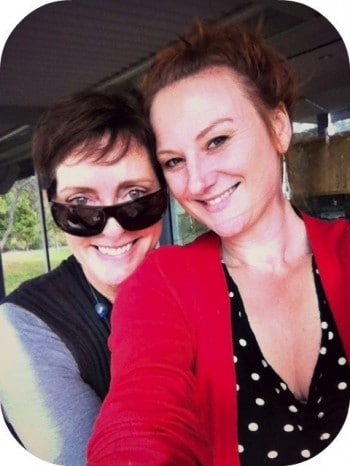
Anne: Yes. Yes, although I have to say, I probably don’t consciously use them. I think the experience goes subconsciously into your bag of tricks but I’ve really only accessed any of those techniques if I’ve had a problem. If I’m finding I’m blocked around something or if I’m having some sort of problem that needs to be solved then I’ll go back to that…but very, very rarely.
Marika: I think it just becomes second nature…
Anne: Well, I think it does, it really does. I had to do a screen test yesterday and I couldn’t even really tell you what my process is anymore.
Marika: Is it script analysis? Is it more instinct?
Anne: It’s not something that feels at all intellectual. It’s almost like a strange, sort of, organic osmosis or something where I’ll… I’ll sit with things for a while, then it’s more… an internal imaginative process of connecting with whatever those states are that the character’s in and I couldn’t even tell you how it happens a lot of the time. I think the best kind of creativity is actually born out of some sort of state of stillness or of not being in the way. I don’t think it’s got, for me anyway, much to do with an intellectual process. It’s actually sitting in a state of nothing that allows creativity to be born, for me. I probably sound like a complete wanker but I don’t really care. That’s the other great thing about being older is that I don’t give a shit [Laughter].
Marika: You’re just getting out of your own way.
Anne: Yeah, it’s a beautiful thing. There’s an inner stillness. It’s the same thing with someone’s who’s a great tennis player or, you know, a sportsperson or an artist of some other kind. Everyone talks about ‘being in the zone’ and I think ‘in the zone’ is an inner stillness. You get out of the way and that, being in the zone is, kind of… Part of my process, I think, is finding the stillness… where creativity lives.
Marika: Good answer.
Anne: Well, you see, it’s not only creativity that lives there. It’s too… I think joy lives there. I think love lives there. I think that’s where all the good stuff is.
Living In Wandin Valley
Marika: I was born in 1981, which is the year the very popular TV series A Country Practice began, and when I was 13, it ended, and my Nan and I watched that series every single day. Home after school, they did the re-runs and the new ones each week, and I remember when the Anna and Tom storyline started… It’s probably my favourite storyline, Anne, and it’s safe to say, I’ve had you on a pedestal ever since! [laughter] At the time that show was massive…
Anne: Oh, it was huge for me at the time. I was 28, I think, and they were fabulous years. I was only on there for just under two years.
Marika: Wow.
Anne: You are really in your prime, I think, late 20s. It was just a really positive time…making good money, I had a lovely relationship. I loved driving out to Woop Woop at four o’clock in the morning to go on location. Great food… although I did put on a lot of weight and then I had to go and lose it again…
Marika: Catering trucks! Catering trucks!
Anne: I know, they’re so cruel…
Marika: [Laughter]
[pull_left]I couldn’t even tell you how it happens a lot of the time. I think the best kind of creativity is actually born out of some sort of state of stillness or of not being in the way[/pull_left]
Anne: They were fabulous years, so much fun and great learning as well, you know, working in that kind of television where you’re having to shoot so fast and week after week after week, and you hit a level of relaxation within that which is so great as an actor because you trust your intuition so much more. I learnt to trust my instincts.
Marika: It’s good though because you had that solid theatre and then you went into TV and then were able to come back out of it so it’s never been an issue for you to jump in and out…which is a gift really.
Anne: Yeah. I was very fortunate to be able to work across different mediums…You see, lifestyle-wise, I love film and television because I’m a morning person. I love getting up early. I love being on a film set. I love the nature of film and television and lifestyle-wise with the family, it’s much easier. Theatre, I love as well, but I don’t like working nights, which is a bit of a big issue really. The kids hate me working nights…
Marika: It’s a challenge to stay healthy and keep your life together when you’re doing theatre, I think sometimes. Depending on the show too. If it’s a really long, gruelling show…You just get sucked into this vortex really.
Anne: Oh, yeah. Absolutely. I mean, you know, I’ve done enough dark theatre to know that it can be very unhealthy to be in that, kind of, space and not be able to let go of that energetically when you’re doing eight shows a week, you know. There’s a grey area… and if you’re working, with the kids, you still have to get up and get them off to school and stuff like that so it’s really, really hard.
Winning Isn’t Everything
Marika: On the weekend, I saw in the newspaper that David Gulpilil won the Award For Best Actor at Cannes Film Festival, and it was occupying a tiny space in the paper on page seven… it made me think a little bit about, you know, accolades and culture in this country and how we respect actors.
Anne: Yes…
[pull_right]There’s no payoff really. I mean, you could win an award every year and it’s not going to make a jot of difference because it’s a very small industry[/pull_right]
Marika: You have won an AFI Award, a Sydney Theatre Critics Award, and have been nominated for a Helpmann Award – What did that mean to you, and what do any of those prizes mean in the context of our industry?
Anne: Personally, they don’t mean anything to me. I mean, it’s a nice thing to happen, there’s no doubt about that. You know, the thing is that it doesn’t make any difference.
Marika: Really?! [Laughter]
Anne: No. I remember Paul Goddard, a wonderful actor, I remember when I won the Sydney Theatre Award for Arcadia. It was a fabulous play and he said, “Oh, golly. Well, now you won’t work for the next few years.” He said it’s like a jinx, that every time he wins an award, he doesn’t get any work and it made me laugh but what it did make me think was, that in this country there’s no, kind of, follow through.
Marika: No. There’s no ladder.
Anne: There is no ladder.
Marika: [Laughter]
Anne: No. There’s no… momentum that builds throughout a career. There’s no payoff really. I mean, you could win an award every year and it’s not going to make a jot of difference because it’s a very small industry. It’s an overcrowded industry, so I don’t think that it makes any difference at all whether you win an award or not. I mean, it’s lovely to have that recognition from your peers but you wouldn’t want to be pinning your hopes on it, would you? You wouldn’t want it to define you in any way.
Marika: You wouldn’t want to sit at home the next day waiting for the offers to roll on in
[Laughter].
Anne: No. Its like, ‘Is the phone ringing?’ Yeah, not really. [Laughter]
Here’s To The Girls Who Play Smart
Marika: What made you then agree to do the musical Company after having decided after NIDA that you wouldn’t do musicals?
Anne: Well, it was 23 years later. That’s a long, long time and I think when I had the kids, I decided I would quite like to sing again and… but I didn’t want to sing musical theatre. I wanted to sing jazz. You know how you have those lists where you write, ‘give up smoking, learn a language, get fit’…
Marika: [Laughter]
Anne: ‘Sing jazz’ had been on my list for a long time and I’d never done… and then I had the kids and I had more time on my hands and no creative outlet at that time and so I went and started singing again in this funny little garage over at Hunters Hill with this crusty, old, fabulous jazz musician, Freddie Wilson and I’d go every Saturday. I’d go to Freddie’s garage. He had a little jazz combo, a few singers and we’d take turns to get up and sing and Freddie would say, “That was so awful” … He was just hilarious – Oh, I loved it! It just became my, sort of, thing for a while and I just wanted to sing jazz, not for anyone, I just wanted to sing. So, I’d, sort of, started singing again but not with a view to ever doing anything, and then… I had started developing Breast Wishes as an idea. We had the first workshop.
Marika: So, meeting musical theatre people really?
Anne: Yeah. Yeah. And then Gale Edwards asked me to audition for Company and Company had been one of my all-time favourite musicals.
Marika: It’s an amazing show.
Anne: I remember when I was younger, looking at that role of Joanne and thinking, “One day, I’m going to be old enough to play her” and then I got old enough, and I went and auditioned and sang a jazz number, and got it and then went, “Fuck, I haven’t sung for…?!?!” – Certainly hadn’t sung that kind of music. I mean, that music is not easy but I did know I would approach it as an actor because I think that’s why I love Sondheim because it’s great for actors. Oh, man, there’s so much depth and complexity to that stuff, it’s wonderful. So, off I went back to singing lessons, doing the vocal exercises and I was terrified, terrified. I had laryngitis the week before rehearsal started, lost my voice. I went and saw a doctor who said, “You’re really frightened.” I was shitting myself. I mean, David Campbell, Tamsin Carroll, James Millar, Simon Burke, Katrina Retallick – everyone…!!!
Marika: [Laughter]
Anne: I was shitting myself.
Marika: But then you did it and you were loved by audiences!
Anne: I had a fantastic time. I mean, it was an absolute ball. And the wonderful musical director Peter Casey was so kind and so gentle with me, and really so supportive. My confidence grew over that time. I loved hanging out with those musical theatre people. So much fun and they were, again, really strong connections, and then James Millar came and joined me on Breast Wishes and became just completely instrumental in the evolution of that.
Marika: He’s an extreme talent.
Anne: Unbelievable… Unbelievable talent. So, that was a really fabulous period.
Marika: Would you do it again?
Anne: Would I… (pause)
Marika: Is there anything on your wish list…?
Anne: Well, I must say, I saw the The Drowsy Chaperone recently at The Hayes Theatre and went, “Oh, I’d love to do that.” That’s a fabulous piece. I don’t know…again, I’m not a huge musical theatre fan and I think there are so many people that can do it better than I can. I’d rather see them do it than me, to be honest. You know, people like you.
Marika: I think a lot of people want to see you do it again [Laughter].
Art As A Weapon
Marika: The musical Breast Wishes was born out of your desire to make a difference by creating a piece about breast cancer to raise awareness and money to fight the disease. Do You think artists and art can make a difference?
Anne: Oh, absolutely, without any doubt, theatre, I think, can affect social change. Absolutely. I think it’s one of the best things about theatre when it’s done well, I think it can be absolutely an instrument to change the world. I think it’s the nature and history of storytelling to inform and move and ignite the flame of compassion in people…I think it’s a really powerful form. But Breast Wishes didn’t become what I had hoped it would be…
Marika: Does anything you create from scratch? I’ve yet to meet anyone who makes their own work who feels 100% happy with.
Anne: Well, it wasn’t so much that part… But I wanted it to make money for the Breast Cancer Foundation. I mean, it did a great job in raising awareness. It was seen by over 50,000 women throughout Australia, particularly throughout regional Australia, and I know countless stories of people who saw that show, had their breasts checked and found a lump. I mean, that’s extraordinary…!
Marika: Yeah.
Anne: … and wonderful, so I think that it was of great value in many ways but to make money… fuck, I don’t know how you do that. I don’t know how…
Marika: When you work it out, can you let me know? [Laughter]
Anne: Yeah! I really wanted it to be a financial success for the foundation. I had watched Menopause The Musical and that made a lot of money and I thought, ‘wow, if I can do something like that with Breast Wishes then it can be a significant fundraising vehicle for research’. What an amazing thing that would be, and I feel like we failed on that front, you know…. It succeeded in many ways but financially, it certainly didn’t and I don’t know why something like Menopause The Musical succeeds and something like Breast Wishes, does not.
Marika: I don’t know.
Anne: … because I know Breast Wishes was funny and light and gorgeous but then it went to the darker side and I think maybe some people don’t want their hearts opened. I don’t know but for me, it was still an incredibly worthwhile and fulfilling thing to have created.
The Joy, The Challenge… And The Wrinkles
Marika: You mentioned ‘being older’ earlier, and I wasn’t going to chat about this, but when you are getting older or whatever, and as an older woman ‘feeling invisible’, does that hit home harder when you’re an actor, when your body is your vehicle for expressing yourself?
Anne: Absolutely. Well, partly. Not so much in terms of the fading looks.
Marika: You’re doing alright there [Laughter].
Anne: Well I mean, you know, gravity takes over and you have lines you didn’t used to have and all of those things… But not so much that because I think there’s value in aging gracefully and there are older female characters that look Botox’ed, so I think there’s value in aging gracefully. I don’t feel badly about that. There’s just less fucking work so, you know, there just aren’t very many roles for women over 50.
Marika: Hmmm.
Anne: So, when I go for things, there’s a lot of competition for very little projects. There’s just not many projects…or roles.
Marika: Particularly ones that are good roles…
Anne: Interesting roles, yeah. It’s like, where are the women? Where are the fabulous stories about women? Maybe is it because the men are writing the stories more than women? I don’t know.
Marika: Well, we’ve seen what happened when the wonderful Debra Oswald, writing something like Offspring and here we have this incredible world and it doesn’t matter…they’re just great stories. Every single character in that is written really well…
Anne: Yeah.
Marika: … and they’re all interesting. They all get their time and I’m so glad for that… She’s fantastic, and I’m so glad that
is such a commercial success because it’s lovely to see that for a change.
Anne: Oh, it’s a wonderful series. Yeah, I love it. It’s one of my favourites.
Marika: What is the greatest joy, and the greatest challenge of your job? I ask this of everyone and I am fascinated by the answers…
Anne: I think the greatest challenge is in relinquishing the ego, as in silencing the inner critic. The joy is the moments of creation, but particularly, the moments of shared creation because what I love about being an actor really are other actors and the shared experience of collaborating and creating, and directors. The joy of collaboration where, you know, that magic is allowed to occur.
Marika: Yes.
Anne: What I love most is being in a rehearsal room.. That’s the best thing. If I could just work in a rehearsal room, I’d be very happy.
Marika: [Laughter]. I think a lot of actors may agree with you.
Anne: That’s the beauty…
Marika: That’s the magic.
Anne: That’s where the magic happens and that’s why I love working in film and television is almost similar to being in a rehearsal room because that…cause if you’re doing it well and if you can create the right environment, the crew capture the magic.
Marika: I hadn’t thought of it that way. That’s a really lovely way to think of working on set. Thanks Anne Looby!
Anne Looby: You’re welcome!
[laughter]

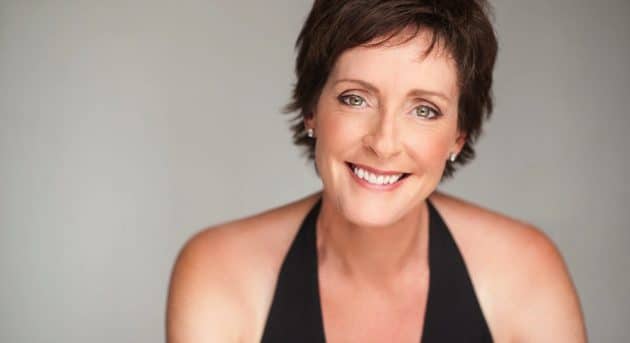
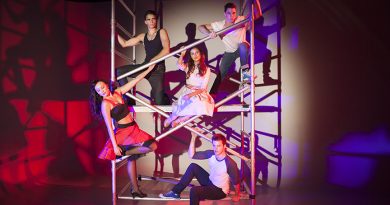
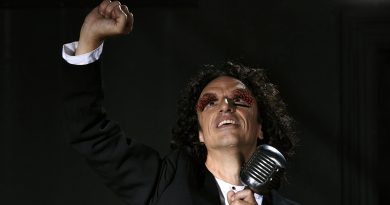
I came across this by accident but I have enjoyed reading it so much that I read it twice..Anne you were always an outstanding talent and a joy to watch on stage…I used to watch you onstage and think Wow what a talent and the kindness you showed to other people in the cast .
What amazing achievements and a wonderful career You have had and are still having….what a delight to read your story today it was like time travel for me..
Very best wishes for the future and I hope I get the chance to see you on stage again the next time I am in Sydney.